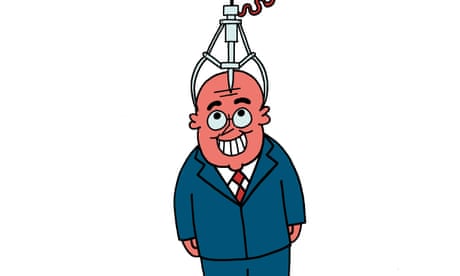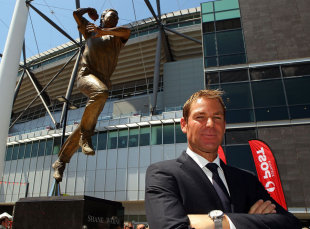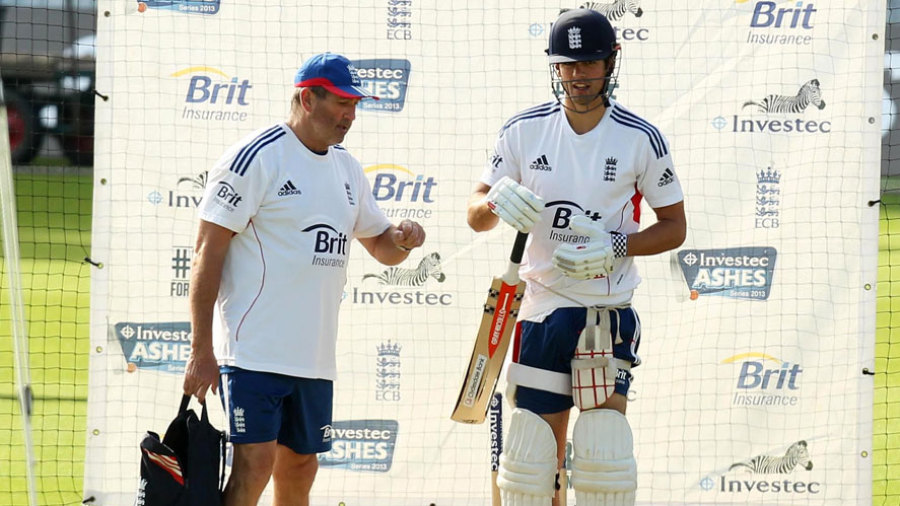From The Economist

Luck plays a big and often unacknowledged part in career success, starting in the womb. Warren Buffett has talked of winning the “ovarian lottery” by being born in America when he was, and being wired in a way that pays off in a market economy. Good looks are associated with higher pay and a greater chance of being called to interview in hiring processes. Your experience of discrimination will reflect your circumstances of birth.
The early way-stations in a career are often marked by chance: a particularly encouraging boss, say, or an assignment that leads you off in an unexpected but defining direction. Luck can affect the pathways of the most rational-minded professions. A paper published in 2022 by Qi Ge of Vassar College and Stephen Wu of Hamilton College found that economists with harder-to-pronounce names, including within ethnic groups, were less likely to be placed into academic jobs or get tenure-track positions.
Names can work against economists in other ways. Another study, by Liran Einav of Stanford University and Leeat Yariv, now of Princeton University, found that faculty with earlier surname initials were more likely to receive tenure at top departments, an effect they put down to the fact that authors of economics papers tend to be listed alphabetically.
Performing well can be due to luck, not talent. In financial markets, asset managers who shine in one period often lose their lustre in the next. The rise of passive investing reflects the fact that few stockpickers are able persistently to outperform the overall market. The history of the oil industry is shot through with stories of unexpected discoveries. A recent paper by Alexei Milkov and William Navidi of the Colorado School of Mines found that 90% of industry practitioners believe that luck affects the outcome of exploration projects. The authors’ analysis of 50 years of drilling on the Norwegian Continental Shelf concluded that the differences in success rates between individual firms were random.
There is a long-running debate about whether luck affects executives’ pay. A recent paper by Martina Andreani and Lakshmanan Shivakumar of London Business School and Atif Ellahie of the University of Utah suggests that it does. The academics looked at the impact of a big corporate-tax cut in America in 2017, an event which resulted in large one-off tax gains and losses for firms that were based on past transactions and that could not be attributed to managers’ skills. They found that larger windfall gains led to higher pay for ceos of less scrutinised firms; tax losses did not seem to affect their earnings. Lucky things.
Just as some people blindly believe that merit determines success, so it is possible to get too hung up on the role of chance. ceos may well be rewarded for luck but slogging to the top of companies involves talent and hard work. Although some have argued that entrepreneurs are simply people fortunate enough to have a large appetite for risk, skill does matter. A paper from 2006 by Paul Gompers of Harvard University and his co-authors showed that founders of one successful company have a higher chance of succeeding in their next venture than entrepreneurs who previously failed. Better technology and greater expertise reduce the role of chance; the average success rates in oil exploration, for example, have gone up over time.
But if luck does play a more important role in outcomes than is often acknowledged, what does that mean? For individuals, it suggests you should increase the chances that chance will work in your favour. Partners at y Combinator, a startup accelerator, encourage founders to apply to their programmes by talking about increasing the “surface area of luck”: putting yourself in situations where you may be rejected is a way of giving luck more opportunity to strike.
An awareness of the role that luck plays ought to affect the behaviour of managers, too. Portfolio thinking reduces the role of luck: Messrs Milkov and Navidi make the point that the probability of striking it lucky in oil exploration goes up if firms complete numerous independent wells. If luck can mean a bad decision has a good result, or vice versa, managers should learn to assess the success of an initiative on the basis of process as well as outcome.
And if the difference between skill and luck becomes discernible over time, then reward people on consistency of performance, not one-off highs. Mr Buffett might have had a slice of luck at the outset, but a lifetime of investing success suggests he has maximised it.

Luck plays a big and often unacknowledged part in career success, starting in the womb. Warren Buffett has talked of winning the “ovarian lottery” by being born in America when he was, and being wired in a way that pays off in a market economy. Good looks are associated with higher pay and a greater chance of being called to interview in hiring processes. Your experience of discrimination will reflect your circumstances of birth.
The early way-stations in a career are often marked by chance: a particularly encouraging boss, say, or an assignment that leads you off in an unexpected but defining direction. Luck can affect the pathways of the most rational-minded professions. A paper published in 2022 by Qi Ge of Vassar College and Stephen Wu of Hamilton College found that economists with harder-to-pronounce names, including within ethnic groups, were less likely to be placed into academic jobs or get tenure-track positions.
Names can work against economists in other ways. Another study, by Liran Einav of Stanford University and Leeat Yariv, now of Princeton University, found that faculty with earlier surname initials were more likely to receive tenure at top departments, an effect they put down to the fact that authors of economics papers tend to be listed alphabetically.
Performing well can be due to luck, not talent. In financial markets, asset managers who shine in one period often lose their lustre in the next. The rise of passive investing reflects the fact that few stockpickers are able persistently to outperform the overall market. The history of the oil industry is shot through with stories of unexpected discoveries. A recent paper by Alexei Milkov and William Navidi of the Colorado School of Mines found that 90% of industry practitioners believe that luck affects the outcome of exploration projects. The authors’ analysis of 50 years of drilling on the Norwegian Continental Shelf concluded that the differences in success rates between individual firms were random.
There is a long-running debate about whether luck affects executives’ pay. A recent paper by Martina Andreani and Lakshmanan Shivakumar of London Business School and Atif Ellahie of the University of Utah suggests that it does. The academics looked at the impact of a big corporate-tax cut in America in 2017, an event which resulted in large one-off tax gains and losses for firms that were based on past transactions and that could not be attributed to managers’ skills. They found that larger windfall gains led to higher pay for ceos of less scrutinised firms; tax losses did not seem to affect their earnings. Lucky things.
Just as some people blindly believe that merit determines success, so it is possible to get too hung up on the role of chance. ceos may well be rewarded for luck but slogging to the top of companies involves talent and hard work. Although some have argued that entrepreneurs are simply people fortunate enough to have a large appetite for risk, skill does matter. A paper from 2006 by Paul Gompers of Harvard University and his co-authors showed that founders of one successful company have a higher chance of succeeding in their next venture than entrepreneurs who previously failed. Better technology and greater expertise reduce the role of chance; the average success rates in oil exploration, for example, have gone up over time.
But if luck does play a more important role in outcomes than is often acknowledged, what does that mean? For individuals, it suggests you should increase the chances that chance will work in your favour. Partners at y Combinator, a startup accelerator, encourage founders to apply to their programmes by talking about increasing the “surface area of luck”: putting yourself in situations where you may be rejected is a way of giving luck more opportunity to strike.
An awareness of the role that luck plays ought to affect the behaviour of managers, too. Portfolio thinking reduces the role of luck: Messrs Milkov and Navidi make the point that the probability of striking it lucky in oil exploration goes up if firms complete numerous independent wells. If luck can mean a bad decision has a good result, or vice versa, managers should learn to assess the success of an initiative on the basis of process as well as outcome.
And if the difference between skill and luck becomes discernible over time, then reward people on consistency of performance, not one-off highs. Mr Buffett might have had a slice of luck at the outset, but a lifetime of investing success suggests he has maximised it.







 Stuart Lancaster's England appeared to suffer a crisis of confidence during their World Cup games Photo: REUTERS
Stuart Lancaster's England appeared to suffer a crisis of confidence during their World Cup games Photo: REUTERS Fake it to make it: Davina McCall admits to suffering from low confidence as a teenager Photo: Andrew Crowley
Fake it to make it: Davina McCall admits to suffering from low confidence as a teenager Photo: Andrew Crowley In the eye of the storm: Wales coach Warren Gatland Photo: AFP
In the eye of the storm: Wales coach Warren Gatland Photo: AFP
